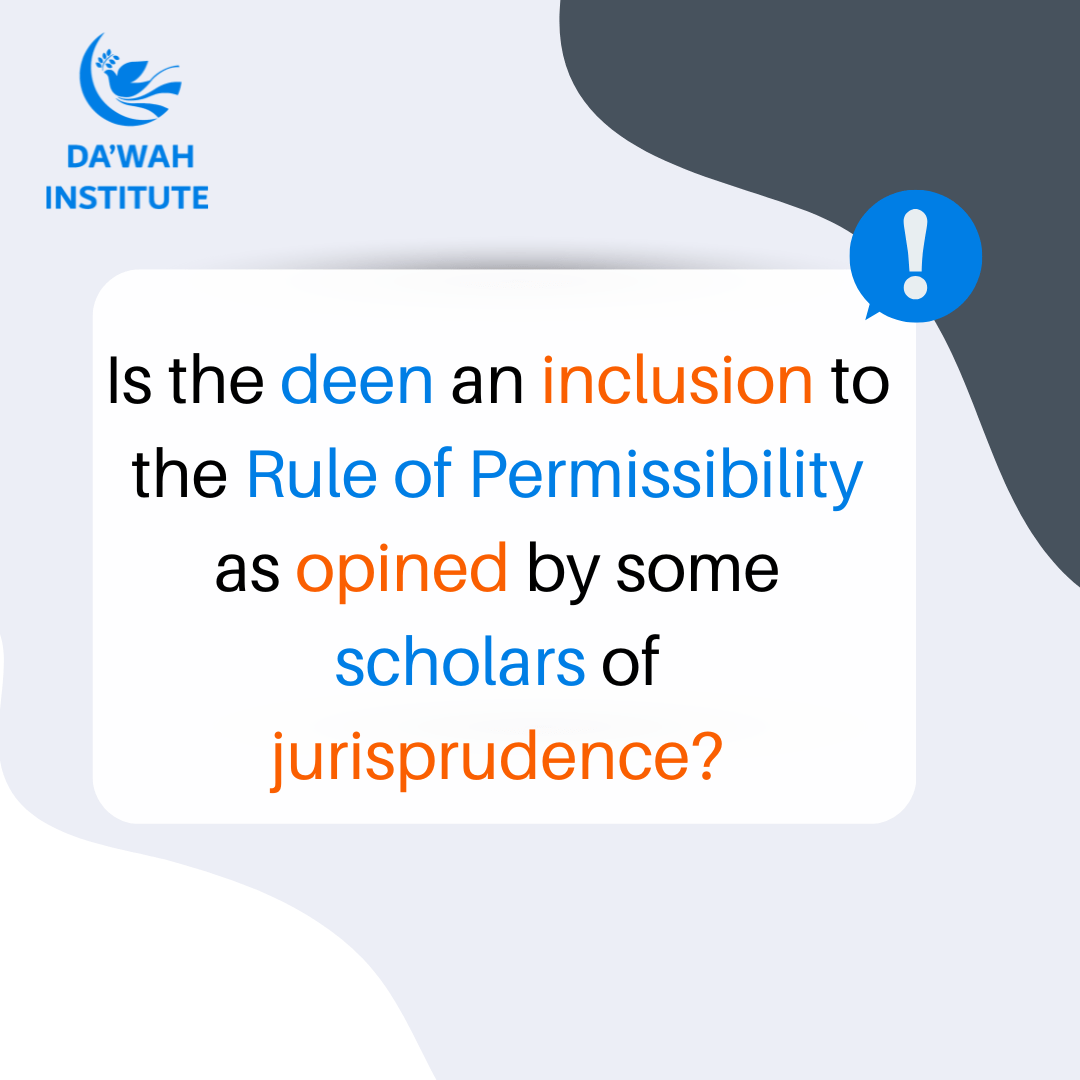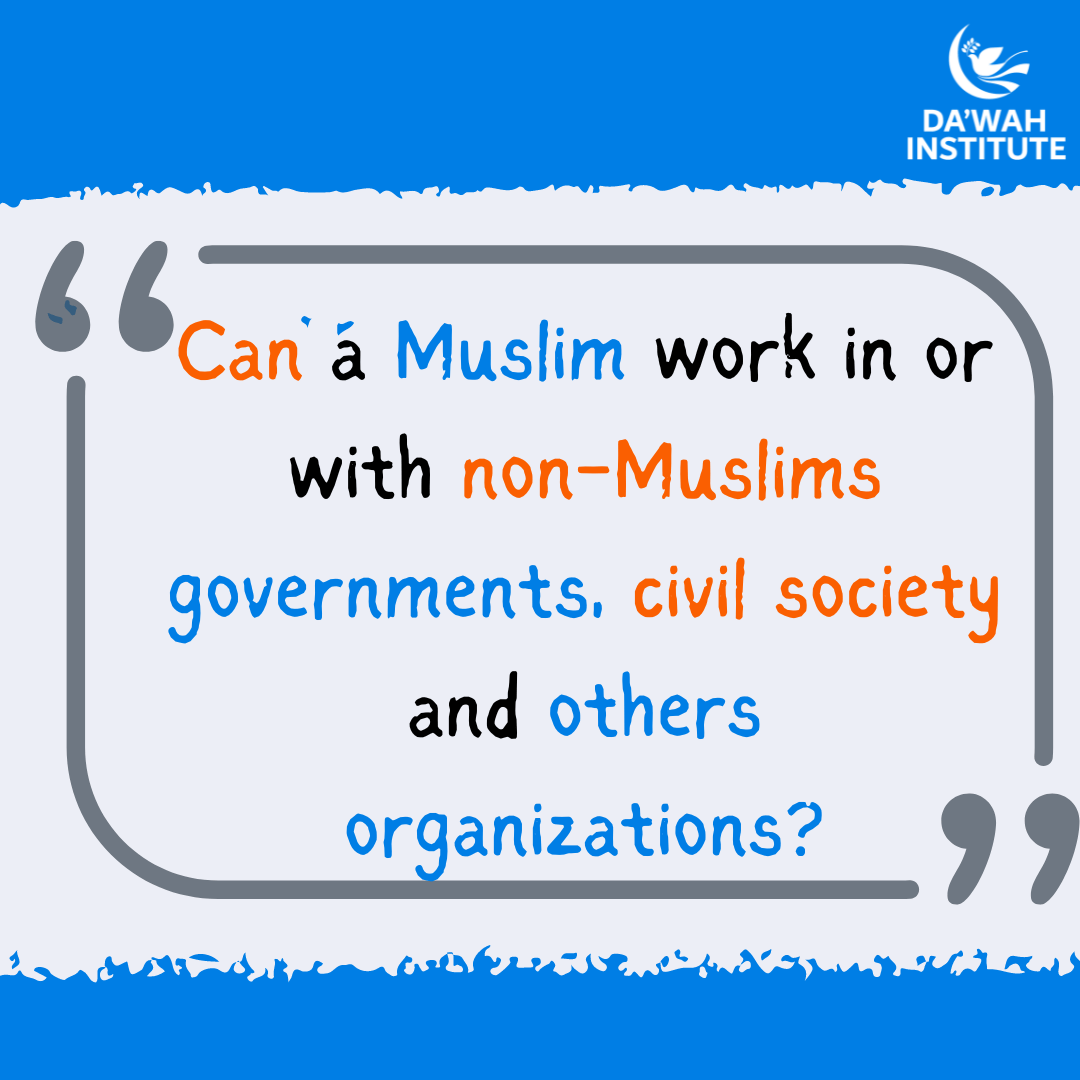
Some scholars make no distinction in the application of the principle of permissibility (everything is permissible except what is prohibited) to both ibadat and mu’amalat, so long as the contents and purpose is virtuous. Depending on the analysis of evidence or proofs (adillah), both ibadah and mu’amalat would be classified or judged according to the criteria of the 5 ethical rulings or value-judgements (ahkam) of Shari’ah.
Acts of devotion (ibadah) not done by the Prophet or his companions, such as collective dhikr after prayers (salat), performing any form of special prayer for the dead a fixed number of days after the person’s demise etc, which the first group would regard as unacceptable bid’ah are regarded as “good bid’ah” (bida’ hasanah) by this second group, if these acts do not contravene the Qur’an and Sunnah, and if the motives are virtuous.
A common evidence used to justify the idea that an innovation (bid’ah) could be applied to an acceptable act of worship (i.e. a “good bid’ah” in ibadah) is the fact that during his Caliphate, Umar bin Al-Khattab institutionalized the performance of regular congregational tarawih prayers in Ramadan, after which he remarked, “What an excellent bid’ah this is!”, (Sahih al-Bukhari Vol. 3, No.227 in Alim.) in spite of it being an act of ibadah. This statement of Umar has been interpreted differently by various scholars. Some view Umar as having used the word bid’ah in its purely lexical or linguistic and not technical sense, and regard Umar’s practice as part of the Sunnah, since the Prophet (p) is reported to have said, “You must follow my sunnah and that of my rightly−guided successors. Hold to it and stick fast to it. Avoid innovation, for every innovation is a heresy, and every heresy is an error”.
Others however view Umar’s statement as setting a precedent of a “good bid’ah”, and the linguistic with certain qualifications as being the technical meaning. Al-Mustadrak, no.329
According to Al-‘Izz bin Abdulsalam, “Bid’ah is what was not practiced during the era of the Prophet, and it is divided into wajib (obligatory), haram (unlawful), mandub (recommended), makruh (offensive), and mubah (permissible).” Al-‘Izz bin Abdulsalam, Qawa’id al-Ahkam fi Masalih al-An’am. Dar al Ma’rif, Beirut, Lebanon Vol.2, p.208-209.
In this opinion, the principle of general permissibility (i.e. halal) remains the default verdict for everything in mu’amalat and acts of worship (ibadah). Though treated with greater reservation, creativity and innovation in deen or ibadat are not regarded as automatically haram and blameworthy innovations or heresy (bid’ah) by default, if they do not contradict or contravene the Shari’ah and its major sources (or adillah).





